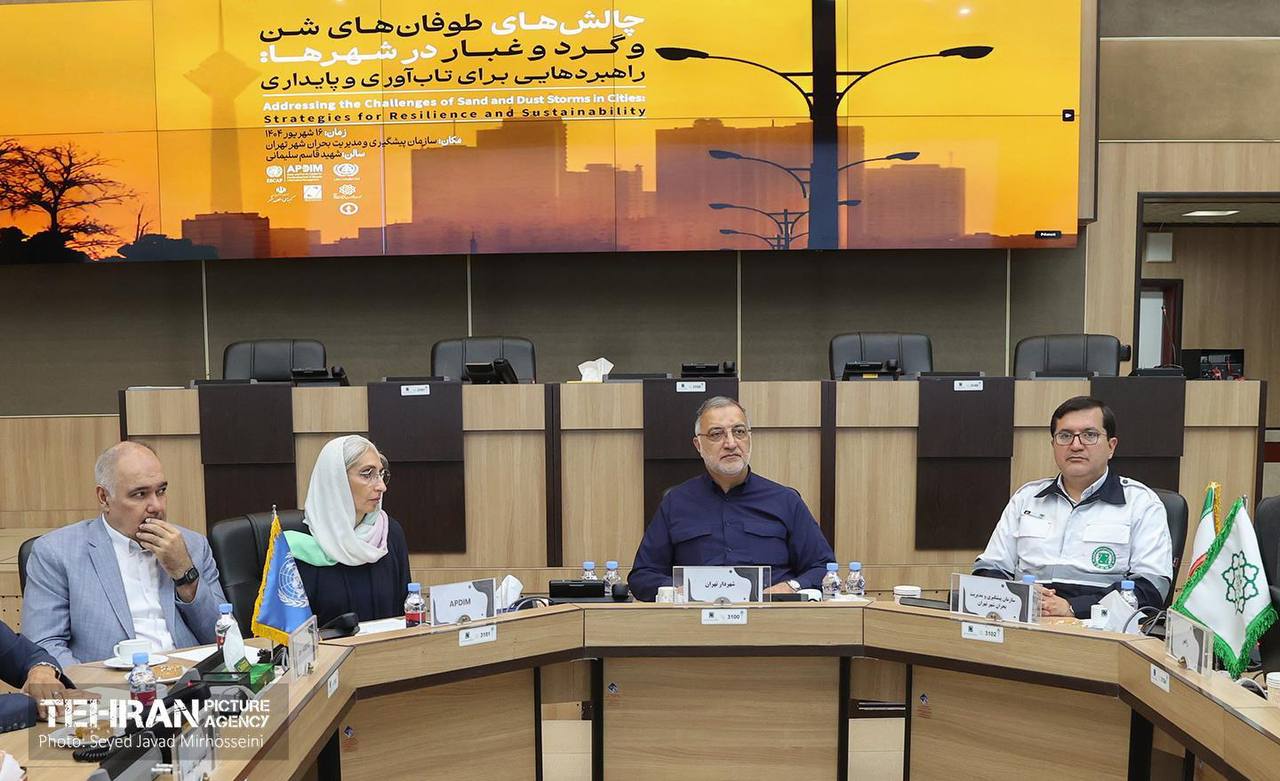News stories
ECO Member Countries Experts Discuss Disaster Risk Reduction And Management for Cascading Risks in the ECO Region
Asian and Pacific Centre for the Development of Disaster Information Management
Online, 14 February 2022

Regional consultation on disaster risk reduction and management for cascading risks and biological hazards was convened today jointly by the Economic Cooperation Organization (ECO), United Nations Economic and Social Commission for Asia and the Pacific (ESCAP) and the Asian and Pacific Centre for the Development of Disaster Information Management (APDIM) of ESCAP.
ECO member countries discussed the causes and multiple impacts of cascading risks and biological hazards in particular COVID-19 in the region and stressed the need for adopting disaster-climate-health integrated approach to reduce the risk of disasters in the region. ECO member countries also considered the key areas for cooperation on cascading risks and biological hazards.
Mr. Seyed Mohsen Esperi, Deputy Secretary General of ECO, Ms. Tiziana Bonapace, Director of ICT and Disaster Risk Reduction Division of ESCAP and Ms. Letizia Rossano, Director of APDIM opened the regional consultation. Mr. Mostafa Mohaghegh, Senior Coordinator of APDIM moderated the discussions.
During the workshop Mr. Sanjay Srivastava, Chief of Disaster Risk Reduction in ESCAP and Ms Madhurima Sarkar-Swasigood, Economic Affairs Office at ESCAP elaborated on the Asia-Pacific Disaster Riskscape and technical support through ESCAP’s Risk and Resilience Portal to ECO Member States for accelerating adaptation and resilience pathways.
Dr Abbas Ostadtaghizadeh, Expert Consultant presented the findings of review on cascading risks and existing DRR frameworks in the ECO region during this workshop.
Focal points and experts from the ECO member countries including Azerbaijan, Turkey, Islamic Republic of Iran, Pakistan, Tajikistan, Turkmenistan took part in this discussion. The objective of this regional consultation was to identify key gaps and needs on cascading risks in ECO region as well as to take into consideration the priorities and recommended pathways by ECO members countries toward developing a regional plan of action for cascading risks.
No tags applied
Related news
-
News stories
International Mission of the Capacity for Disaster Reduction Initiative (CADRI) to the Maldives, 17-24 October 2022
Asian and Pacific Centre for the Development of Disaster Information Management
24 October 2022
-
Press releases
Disaster Risk Reduction Mainstreaming In Development Plans
Asian and Pacific Centre for the Development of Disaster Information Management
16 September 2020
-
APDIM in the News
Disaster Risk Reduction Mainstreaming in Development Plans
Islamic Republic News Agency
16 September 2020
-
-
News stories
Addressing the Challenges of Sand and Dust Storms (SDS) in Cities: Strategies for Resilience and Sustainability
7 September 2025






